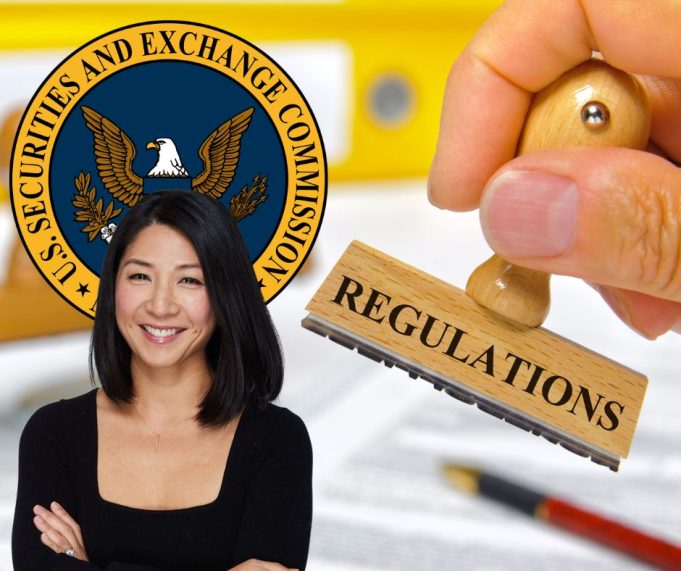The U.S. Securities and Exchange Commission (SEC) is not doing enough to address the digital asset industry, according to TuongVy Le, partner and head of regulatory and policy at investment firm Bain Capital. Le, a former chief counsel for the SEC’s Office of Legislative and Intergovernmental Affairs, said on CoinDesk TV’s “First Mover” Tuesday that the federal agency is regulating “almost entirely through enforcement actions.” He believes that the SEC should be more proactive in providing guidance and clarity to the industry, rather than relying on enforcement actions to regulate the space. He also noted that the SEC should consider creating a new regulatory framework for digital assets, as the current framework is outdated and inadequate.
The SEC recently reached a $30 million settlement with Kraken, a centralized exchange, to shut down its staking service platform to U.S. customers. However, the SEC has not clarified its stance on other forms of staking services, such as self-staking and decentralized staking. According to Kraken’s CEO, Jesse Le, there is still uncertainty about what the SEC considers compliant in terms of staking services. Le believes that more clarity is needed from the SEC in order to ensure that the industry is compliant with the agency’s regulations.
The SEC recently took action against two crypto companies, Kraken and Paxos, for allegedly offering unregistered securities. Kraken was accused of offering unregistered securities in the form of staking services, while Paxos was accused of offering an unregistered security in the form of its Binance-branded stablecoin token, BUSD. According to the SEC, both companies failed to register their offerings with the agency. However, Paxos has argued that its BUSD token is backed one-to-one and does not meet the criteria of a security under the Howey Test. The SEC may be applying a different set of criteria, known as the Reves Test, to determine whether BUSD is a security. It remains to be seen how the SEC will rule in both cases.
The SEC’s enforcement actions can be difficult to interpret, as they are based on specific facts and circumstances. According to attorney Laura Jehl, blindly and mechanically applying existing securities laws to digital assets and blockchain technology could potentially stifle innovation. Jehl warns that without considering the potential of these technologies, the SEC could potentially kill something like staking. She suggests that the SEC should take a more nuanced approach to enforcement, one that takes into account the potential of digital assets and blockchain technology. This would allow for the development of innovative products and services, while still protecting investors.
In order to comply with the US Securities and Exchange Commission (SEC), companies offering staking services must take into account complex questions around custody. This is not as simple as filling out a form on the SEC’s website. Companies must consider the implications of the federal securities laws and how they apply to their services. They must also consider the risks associated with holding and managing customer funds, as well as the need to protect customer data. Companies must also ensure that they are compliant with all applicable laws and regulations. By taking the necessary steps to ensure compliance, companies can ensure that their services are safe and secure for their customers.













